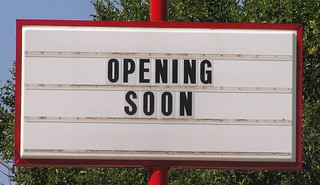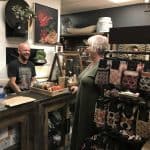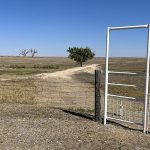By Glenn Muske
Rural and Agribusiness Enterprise Development Specialist
North Dakota State University Extension Service – Center for Community Vitality
A lot of people want to start a business with the next great idea. Practically the entire population of nascent entrepreneurs falls into one of two categories:
- those who think they have the next great idea, or
- those who are looking for the next great idea.
 |
| A great idea is only part of the equation to a successful business and, in fact, may not be required at all. |
Both of these groups think that having the next great idea will ensure that their business will be a success. The reality is that a great idea is only part of the equation to a successful business and, in fact, may not be required at all.
If a great idea isn’t required, what is?
A successful business depends on:
- a good idea, not necessarily a great one,
- plus good planning, networking and persistence.
- It also may mean that failure helps redefine the next business attempt.
- Finally, a successful business requires marketing.
Many people think of marketing as the advertising you see about a product or service. Marketing, though, when fully understood, starts long before a business even has a product or service to offer. It begins with finding the idea that can be transformed into a successful business.
Some of the early steps in finding a business idea are:
- Understanding potential customers and the problem they have. Your task then is developing a solution that solves their problem.
- Developing a message that informs your target audience about your product or service in terms that are understandable and that allow the consumer to see the benefits offered.
- Defining the size of the potential market.
- Knowing that your customers are spending or willing to spend money on a similar product. This also means knowing how much they are willing to pay for something that offers some type of enhanced benefits.
A great product idea is one that simplifies. Your idea may not be new in terms of doing something different, but if it is easier, people will buy. Just look at the growth in prepackaged meals.
The idea of simplification means being willing to break the mold or status quo. And remember that making things easier can just as well be done with items you already are producing.
A great way to get product ideas is to ask your customers. If you don’t have contacts in the area you want to venture into, then find places where these people are and join in the conversation. Today, with online communities, you can find a group talking about just about every possible topic.
You also can attend trade shows, talk to your employees, work your network and even watch or get in contact with potential competitors, especially if you are outside of their trade area.
 |
| Glenn Muske writes these articles for North Dakota, but is kind enough to share them here, too. |
For more help with business ideas, consider what is available at your local Extension Service office. Also visit North Dakota State University’s small-business support website at www.ag.ndsu.edu/smallbusiness and sign up for the monthly newsletter. Small businesses anywhere in the U.S. should check out www.eXtension.org/entrepreneurship.
The Small Business Administration and its related organizations, such as the Small Business Development Centers and Service Corps of Retired Executives, and USDA Rural Development, along with many other state agencies, also can be valuable resources.
Follow Glenn on Twitter for more small business info and links.
And if you want more small biz ideas for small towns, we have an ebook for that.
–Becky
New to SmallBizSurvival.com? Take the Guided Tour. Like what you see? Subscribe.
- About the Author
- Latest by this Author
Glenn Muske is an independent expert on rural small business, working as GM Consulting – Your partner in achieving small business success. He provides consulting, and writes articles for county extension agents and newspapers across North Dakota. Previously, he was the Rural and Agribusiness Enterprise Development Specialist at the North Dakota State University Extension Service – Center for Community Vitality.










